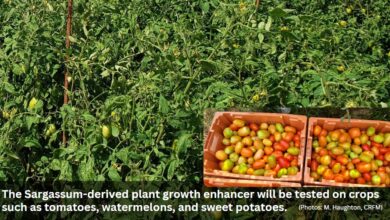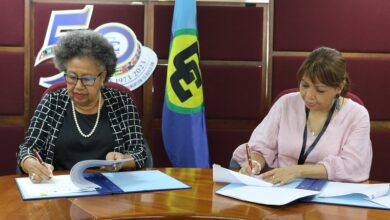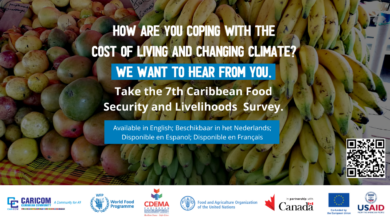GEORGETOWN, Guyana — The multi-faceted role of the agriculture as a main driver of the regional economy was underscored recently, as experts in the field of agriculture and trade gathered in Georgetown, Guyana, to review the Caribbean Community (CARICOM) Common Agricultural Policy (CCAP).
The policy was created to assist member states in agricultural policy formulation, planning, implementation and the monitoring of national policy processes.
The two-day validation workshop for the draft CCAP and implementation plan is part of a broader strategic plan to transform the agriculture sector into one that is internationally competitive and one which contributes to sustainable economic development of the region.
The workshop was preceded by a two-day consultation on agri-business development.
The review falls under a consultancy to develop the CARICOM Community Policy, which is supported by the European Union through the Caribbean Integration Support Project (CISP).
At the opening of the workshop, programme manager of the agriculture sub-programme within the Directorate of Trade and Economic Integration, Sergio Garcia, stressed that a “new paradigm” was necessary for the agriculture sector to “have an impact” on the region.
He said that agriculture had a multi-functional role as a main driver of the regional economy and as a major component of the single development vision of the Community enshrined the framework of the CARICOM Single Market and Economy. It was therefore crucial, he said, that actions which supported the sector’s development met challenges the region faced including the adaptation and mitigation of the effects of environmental threats such as climate change and greenhouse gases.
In the development of the CCAP, he said a public/private partnership should be embraced.
“Gone are the days when policies are written and just sit on shelves,” Garcia said, emphasising the need for agricultural policies to have relevance in a market-driven economy, thus ensuring the sustainability and viability of the sector.
As the multi-stakeholder grouping reviewed the draft community agricultural policy, Garcia said that due diligence must be paid to the promotion of production integration in which the agriculture value chain reflected regional inputs.
In his remarks at the opening of the workshop, chairman of the meeting, Barton Clarke, Director of Agriculture within the Ministry of Agriculture, Barbados, said that the policy was formulated to achieve the goals set out in Article 56 of the Revised Treaty of Chaguaramas to transform the agriculture sector towards market-oriented, internationally competitive and environmentally sound production of agricultural products and to improve income and employment opportunities, food and nutrition security and poverty alleviation in the Community, among other things.
But since the signing of the treaty by CARICOM heads of government in 2001, “much has happened”, he said. In this vein, he said that it was important for the agriculture sector to respond to those changes to assure future generations of food, good health and nutrition.
The multi-stakeholder grouping that met to review the policy included specialists in the field of agriculture and trade; representatives of member states as well as those of regional organisations including Caribbean Agricultural Research Development Institute (CARDI); the University of Guyana; the Caribbean Regional Fisheries Mechanism (CRFM); the Caribbean Food and Nutrition Institute (CFNI); Inter-American Institution for Cooperation on Agriculture (IICA); representatives of farmers and agribusiness organisations including the Caribbean Agribusiness Association (CABA) and Caribbean Farmers Network’s (CaFAN), and representatives of international development partners including the European Union; the Canadian International Development Agency (CIDA); and the Food and Agricultural Organisation (FAO) of the United Nations.







